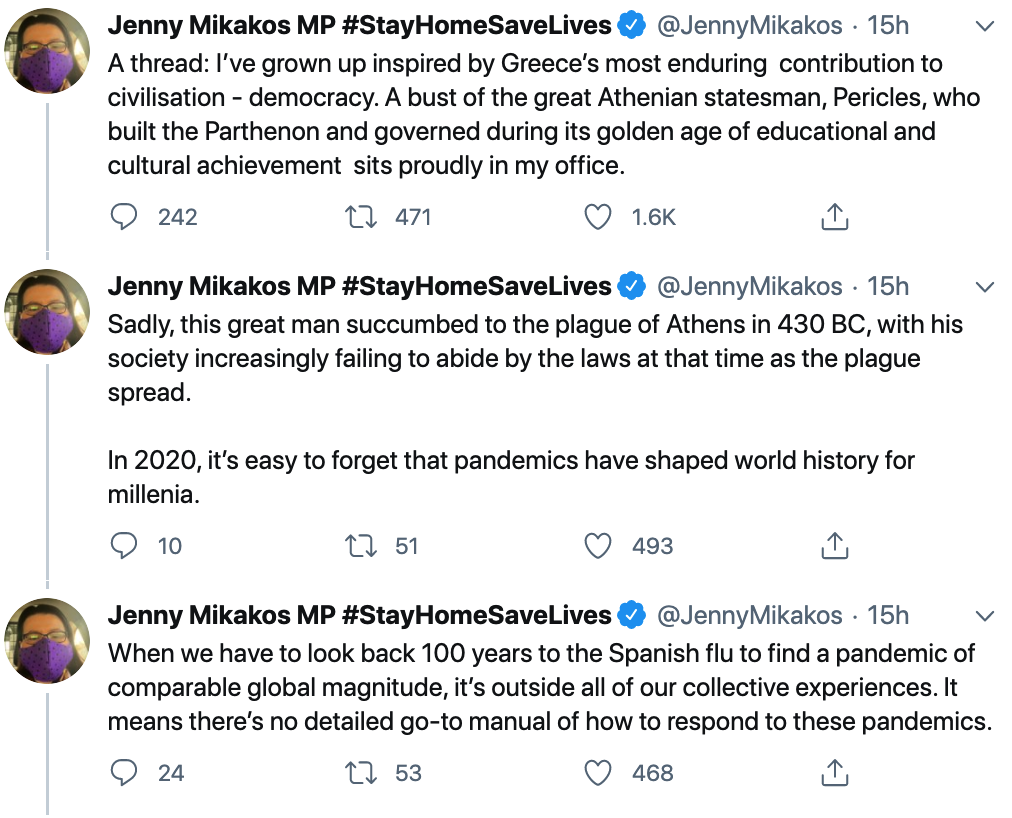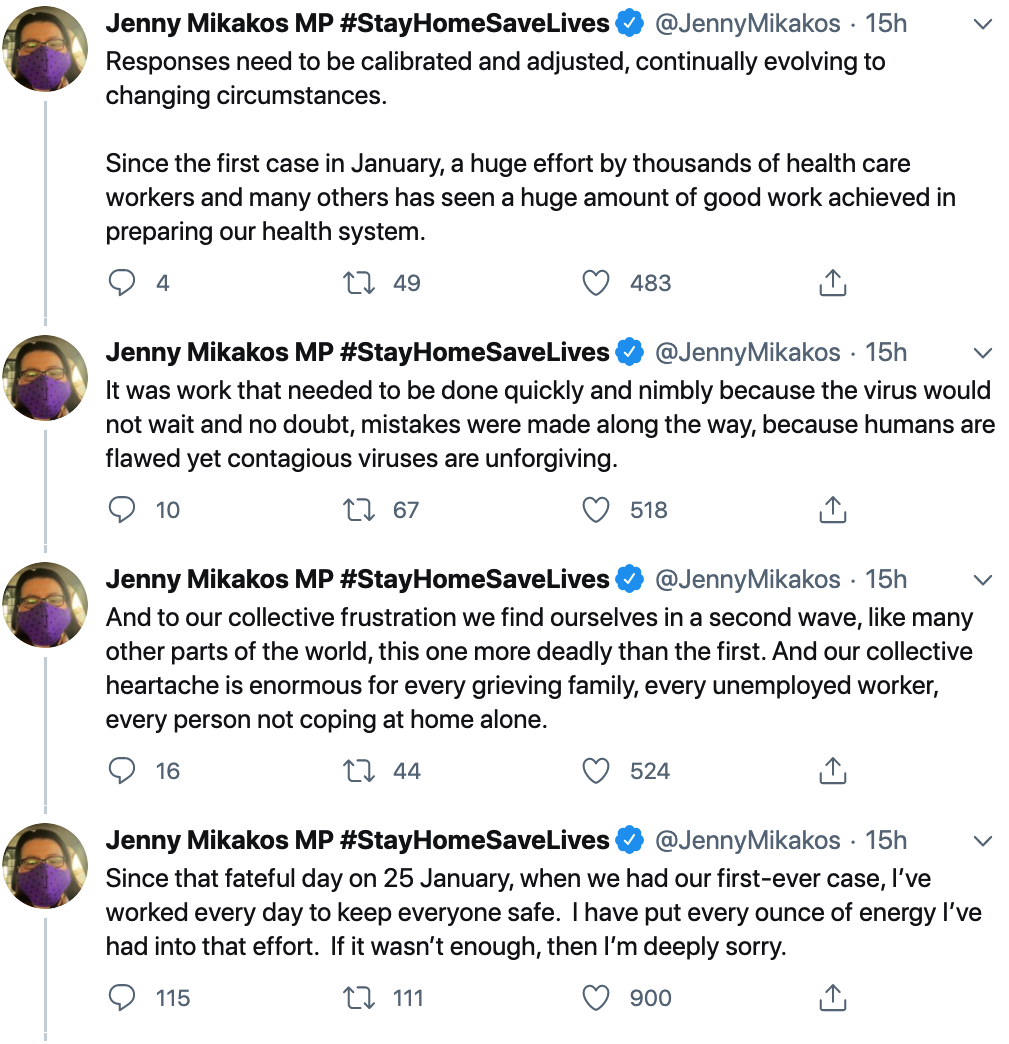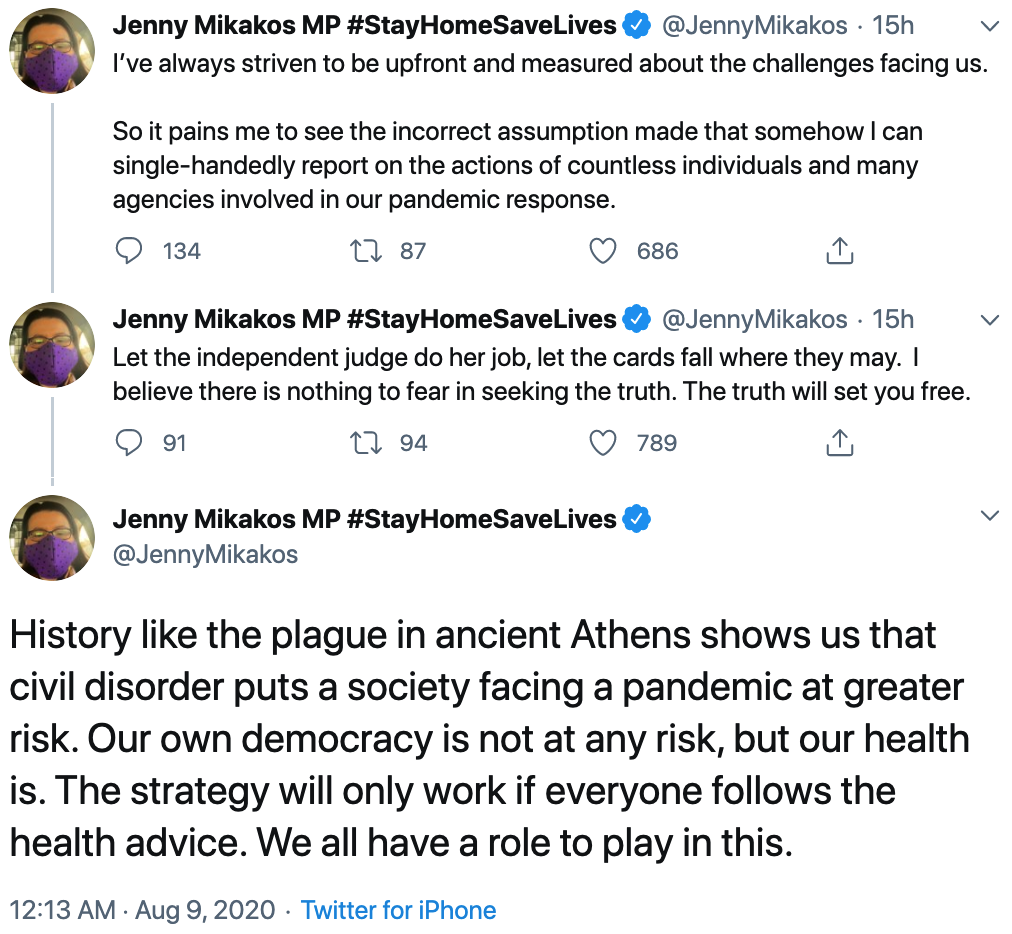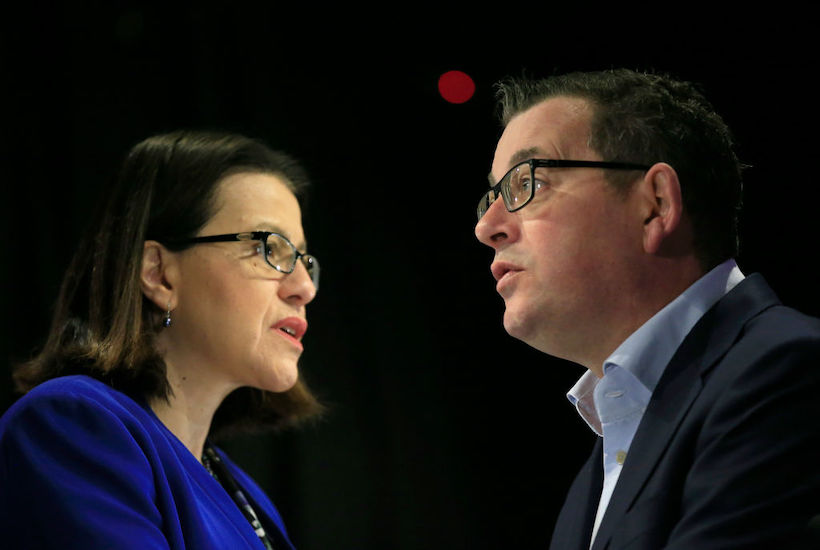As early reports of the devastation of Pearl Harbor filtered into Prime Minister John Curtin’s office that fateful day in December 1941, he understood the terror of a potential Japanese invasion of Australia was reaching fever pitch. Seeking to assuage an anxious nation, Curtin took to the microphone to deliver one of his most famous speeches.
“Men and women of Australia”, he began, “This is the gravest hour of our history. We Australians have imperishable traditions. We shall maintain them. We shall vindicate them.”
In Australia’s darkest hour, facing not only an economic crisis but a threat to the existence of our nation, Curtin stressed the maintenance of Australia’s “imperishable traditions”. These traditions can be interpreted as our commitment to freedom and democracy even in the face of the most diabolical of threats.
In the darkest depths of World War II, and with the future of our nation at stake, our ideals of democracy, accountability and transparency were upheld.
Then, as now, we confronted unprecedented threats to our industries, our jobs and our economic prosperity. Australian governments of the past have revered the democratic process – particularly in times of crisis – as a bulwark against poor governance and weak public policy. Worryingly, the Andrews Government’s commitment to these principles has, some eight months into the COVID-19 pandemic, taken a bad turn.
Last Wednesday, a Liberal Member of the Victorian Legislative Council posed an entirely reasonable, albeit direct question for Health Minister Jenny Mikakos: “Minister, do you accept full responsibility for the failures in the hotel quarantine security program?”
“As I said, I will be providing the member with a written response to this question”, replied an increasingly irritated Mikakos.
The Andrew’s Government had already shut down Victoria’s Legislative Assembly, citing the Chief Health Officer’s advice that it would be unsafe for parliament to sit during the newly-minted stage four restrictions. However, the opposition-controlled Legislative Council refused to adjourn and valiantly tried to provide the last remaining platform for democratic accountability in Victoria.
The written response Mikakos had promised the Parliament, alongside her promises made to an array of Coalition and Independent members, was not provided by Thursday’s deadline, showing her contempt for the orders and democratic conventions of Parliament.
Treasurer Josh Frydenberg stepped up the pressure on Andrews on Saturday, and Mikakos in turn took to social media overnight to defend herself and explain her position. Although she would not answer questions in parliament, she resorted to Twitter to offer a lacklustre half-apology for the government’s failings. She bizarrely referenced the ancient Athenian statesman Pericles in a midnight Twitter thread before stating, “If it wasn’t enough, I’m deeply sorry.” In doing so, Mikakos highlighted the government’s evasiveness and disregard for scrutiny as the wreak havoc on the Victorian economy, social fabric and the state’s self-confidence.



We should not be surprised, given that Mikakos is a part of the Andrews Government’s so-called ‘gang-of-eight’, his tight-knit inner sanctum of cabinet ministers who have driven Victoria’s response to the COVID-19 pandemic. This small group holds a powerful sway over the lives and livelihoods of every individual Victorian, decreeing what people can do, who they can see, when they can leave their homes. It’s telling how few Victorian voters could identify, even less name, the eight people now running their lives.
Whether these restrictions imposed by government on the Victorian people are justified is rightly open to debate among public health experts. Controlling the deadly virus is essential but the lack of accountability, or transparency, is astonishing in a supposedly free and democratic society.
Just as Mikakos swatted away questions in Parliament, Premier Daniel Andrews stood in front of journalists, handballing tough questions about his government’s role in, and responsibility for, the failed hotel quarantine program and contact tracing efforts to an independent inquiry he established.
Social media commentary blasted, not the Premier, but journalists for asking direct and appropriate questions of Andrews. Without the crucial role of these journalists and investigative reporters, the Victorian public would not have any knowledge of the failures of the Andrews Government’s hotel quarantine management. As head of the hotel quarantine inquiry Justice Jennifer Coate outlined, there is no legal reason preventing the government from answering questions ahead of the inquiry’s findings.
The issues of public interest here are clear. Unearthing who is responsible for the failures that have consigned Victoria to becoming the ‘pariah state’ of Australia is critically important in pursuit of good public policy. This goes to one of the core roles of government which is to provide confidence and reassurance to voters that decisions are being made in their best interests.
We are expected to trust the same individuals in our government responsible for the disaster in hotel quarantine to continue leading our response to the pandemic, without knowledge of who is responsible and why those decisions were made. We are also expected to trust these individuals with imposing Stage Four restrictions on Melburnians for the next six weeks.
Public policy ‘on the run’ led to an alarmingly slow and highly consequential response to the appalling failings of hotel quarantine and inevitably led to deaths of Victorians. A clear lack of transparency compounded an already dire situation. This is evidenced by Victorian Chief Health Officer Brett Sutton admitting he found out about problems in the hotel quarantine system from newspaper reports.
These failings of Andrews’ mode of governance come at a time when scrutiny and due process is more crucial than ever. Without due democratic process, governments make decisions without regard to the consequences, leading to poorer policy outcomes. This is what we have seen in Victoria in recent weeks.
In contrast, the Premier’s declaration of a ‘State of disaster’ allows his government complete impunity to control the state, enabling the suspension of laws, seizing property and controlling the movement of people within and outside Victoria. We should not allow such authority over the State without proper democratic processes being in place.
We should be asking, criticising, cajoling and debating. We should be throwing a spotlight on failures or areas for improvement, demanding answers and suggesting alternative ways to handle a crisis that claiming lives, jobs and livelihoods at an alarming rate. We know governments all around Australia have made decisions they have later regretted. We should debate policies on their merits and then steadfastly follow agreed rules.
Where Curtin, at our gravest hour, acknowledged our democratic principles as unassailable, it cannot be said that Andrews has done the same. Not even amidst the darkest moments of world war has Australia shunned its principles of responsible government and democracy.
Prime Minister Scott Morrison knows he needs the Victorian Premier to implement the economic reforms necessary to kick-start the economy, and in the interests of unity, is cautious not to attack Andrews. The Victorian opposition, despite their efforts, appear unable to constructively influence the ‘status quo’ – a problem compounded by the shutdown of the Legislative Assembly. Government ministers refuse to answer the questions of journalists and of opposition MPs.
Irrespective of whether the public health response is justified or effective, democracy and accountability are crucial in a ‘State of disaster’ and we need both now more than ever.
Tom Waite is a graduate student in Public Policy at the University of Melbourne.
Got something to add? Join the discussion and comment below.
Got something to add? Join the discussion and comment below.
Get 10 issues for just $10
Subscribe to The Spectator Australia today for the next 10 magazine issues, plus full online access, for just $10.


























Comments
Don't miss out
Join the conversation with other Spectator Australia readers. Subscribe to leave a comment.
SUBSCRIBEAlready a subscriber? Log in